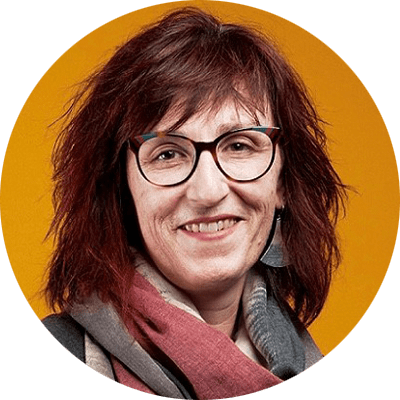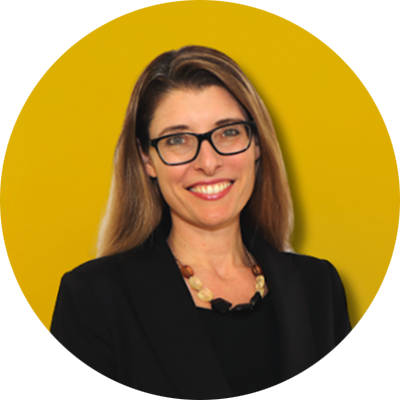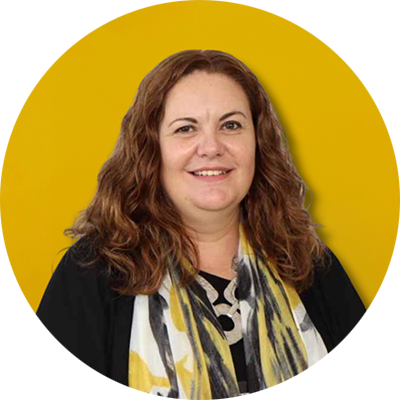Entry requirements
Key information
overall
overall
Note: Part-time equivalent study options are not available for international students.
Develop the knowledge and skills to shape an inclusive society
The Bachelor of Disability and Community Inclusion is your gateway to a fulfilling career.
Grounded in a human rights approach, our program will equip you to work in a range of disability and related human services roles as an effective and capable practitioner supporting people and communities.
No.1 in Australia
in Health Services & Support for full-time employment, learner engagement and skills development
The Good Universities Guide 2025 (undergraduate), public SA-founded universities only
The NDIS will create an estimated
1 IN 5 NEW JOBS
in Australia over the next five years
Australian Government Department of Social Services 2019
No.1 in SA
for overall experience, skills development and teaching quality
The Good Universities Guide 2024 (postgraduate), public SA-founded universities only
Explore diverse career paths in disability and community inclusion
There are numerous career opportunities in the field of disability and community inclusion. With the growing demand for skilled professionals, you'll find a range of roles that allow you to make a meaningful impact.
Potential occupations
- Disability support worker
- Case coordinator/manager
- Community development worker
- Inclusion support professional
- School support officer
- Housing support officer
- Domestic violence advisor
- Disability advisor
- Advocate
Potential employers
- Disability support services
- Government sector/NDIS
- Non-government agencies
- Private sector
- Self-employment
What will you study
Build the knowledge, skills and professional practice across disability studies through progressive coursework and placements.
- Year 1
- Year 2
- Year 3
In your first year, you'll build foundational skills, explore disability contexts, and connect theory with practice through core topics.
Year 1 - Core topics
Your first year might include the following topics. For exact topic information, visit the course Handbook.
In your second year, you'll develop the practical skills, apply learnings with placement opportunities and deepen your advocacy and ethics knowledge.
Year 2 - Core topics
Your second year might include the following topics. For exact topic information, visit the course Handbook.
- Principles of learning and instruction
- Practicum 1
- Employment and disability
- Research and study skills 2
- Disability: health and wellbeing
- Advocacy and working in partnership
- Instructional strategies
- Legal and ethical aspects of health care
In your third year, you'll consolidate your practice skills, explore leadership and policy, and strengthen your professional identity through advanced topics.
Year 3 - Core topics
Your third year might include the following topics. For exact topic information, visit the course Handbook.
- Developing entrepreneurs and small businesses
- Positive behaviour support
- Counselling skills
- Research and study skills 3
- Practicum 2
- Case management and support coordination
- Building community capacity
- Communication rights and access
Accreditation or Professional Recognition
The Bachelor of Disability and Community Inclusion (BDCI) curriculum aligns with the first three years of the Bachelor of Disability and Developmental Education (BDDE) degree. Graduates can complete an additional year to become accredited Developmental Educators.
Boost your knowledge with an Honours in Health Sciences.
The Bachelor of Health Sciences (Honours) is a one-year full-time (or two-years part time) program designed to extend your research skills, critical analysis, and project management.
This program allows you to specialise in a health discipline of your choice, such as nursing, midwifery, physiotherapy, optometry, nutrition, disability, or exercise and sport science. You'll work closely with experienced researchers on projects that aim to contribute to health practices and systems.
Honours study focuses on developing your research, communication, and presentation skills, preparing you for a career in health research or further academic pursuits.
PhD Candidate Tom Brennan shares his journey studying an Honours in Health Sciences and his continuation to a PhD.
No.1 in Australia
in Health Services & Support for full-time employment, learner engagement and skills development
The Good Universities Guide 2025 (undergraduate), public SA-founded universities only
The NDIS will create an estimated
1 IN 5 NEW JOBS
in Australia over the next five years
Australian Government Department of Social Services 2019
No.1 in SA
for overall experience, skills development and teaching quality
The Good Universities Guide 2024 (postgraduate), public SA-founded universities only
Discover South Australia.
Where world-class education meets laid-back coastal living. With pristine beaches, acclaimed wineries, and vibrant festivals at your doorstep, South Australia offers an unmatched student experience.
Photo credit: SATC
Need support?
International Student Services (ISS) is the first point of contact for international student support. The university also offers everything from cultural, health, and wellbeing services, to academic support.
Campus tours
Take a virtual tour of our campuses, guided by your fellow international students.
FUSA
Flinders University Student Association (FUSA) is the heart of the Flinders Experience. FUSA is where you'll find out about events, club memberships, and extracurricular activities.
Accommodation.
Adelaide has many accommodation options for international students. You can choose to live on campus, at our city accommodation provider The Switch, or in rental accommodation.
Flinders offers a vibrant, fun, supportive uni experience you’ll remember for a lifetime.
Need support?
From cultural, health and wellbeing services, to study and financial support, enrolment advice and more, we’re here to help.
Student clubs
Flinders University Student Association (FUSA) is the heart of the Flinders Experience. FUSA is where you’ll find out about events, club memberships and extracurricular activities.
Campus facilities
Flinders’ campuses are hubs of activity, with retail and food outlets, library spaces, study and chill spaces and more.
Learn from the experts.
Our incredible teaching and professional staff are experts in their fields and well-connected to the industry.

Academic Lead
Professor Sally Robison
Sally is a highly awarded researcher, academic and theme lead in the Flinders Caring Futures Institute. Sally’s research and teaching is focused on amplifying what helps people with disability feel safe, well and happy at difficult times in their lives. She also works with governments and organisations about how to listen to the things that matter to disabled people.

UG Course Coordinator
Associate Professor Michelle Bellon
Michelle has had a long career in the disability sector as a Developmental Educator, academic and researcher. Michelle is currently an Epilepsy Ambassador, and member of the Editorial Board of Brain Impairment and DEAI committee.

Postgraduate Course Coordinator
Jaime Gardner
Jaime’s professional practice as a Developmental Educator has focussed on working with adults with brain injuries and their families in community rehabilitation. Additionally, Jaime has also worked as a social worker, supporting women and children experiencing domestic violence.
Let’s get started on your Flinders’ experience.
We know not everyone begins uni the same way, so we offer a variety of pathways into Flinders.
Use the dropdown to tell us a bit about you.
Alternative pathways
UniTEST
If you’re in Year 12, taking the free uniTEST can help boost your chances of getting into Flinders.
Research Project B Pathway
Strong results in your Research Project B subject along with your Year 12 results can be considered for entry.
Year 12 Grades Entry
By using three of your best Year 12 grades, you can also gain a place in your course of choice.
School Recommendation Program
Your school’s recommendation about your academic performance may be considered as part of your admission.
If you started uni but didn't finish, you may be able to gain entry into Flinders with a higher education transfer.
Higher education transfer
If you’re studying at another university, you may be able to transfer to Flinders based on your Yr 12 results, current GPA or other factors.
If you've had TAFE or VET training, you may be able to continue your study with Flinders.
TAFElink
Even if you didn’t finish high school (Year 12), you may be able to study at Flinders through your TAFE/VET qualification.
Dual offer pathways
You may be able to complete a TAFE SA course and have guaranteed entry into Flinders.
Credit transfer
The TAFE/VET stud you’ve already done may be able to be used as credit towards a Flinders’ course.
No ATAR? No worries. If you've got work or life experience, there are pathways into Flinders.
Flinders Foundation Studies
The Foundation Studies Program is free and guarantees entry to a range of degrees.
Skills for Tertiary Admissions Test (STAT)
The STAT is a 2-hour multiple choice test that assesses your abilities.
Year 12 qualifications
If you completed Year 12 more than two years ago you can still use your results to apply.
Concerned about your ATAR? If it doesn't meet the course requirement, or if you don't receive one, we offer alternative pathways to admission. Contact us to discuss your options—we're here to help.
- Entry requirements
- Application options
If you don’t meet our English language entry requirements and need to improve your English language proficiency, you can do so through Flinders University Academy – or our approved English Language Instruction Course for Overseas Students (ELICOS) providers.
This means that you can attend the required English language tuition at approved ELICOS providers and gain direct entry into university without an IELTS or TOEFL test.
If you don’t meet our academic entry requirements, you can still gain entry to Flinders University through Flinders University Academy. With a range of diplomas, foundation and English language courses, students can find a direct pathway into the destination degree of their choice.
How to apply
Select your course.
Check entry requirements.
Check your eligibility for credit.
Obtain certified documents.
Submit your application and documents.
Application options.
Apply online
Follow up our step-by-step guide to help you with your application to study at Flinders.
Find an agent
Our registered education agents around the world understand the university system and will guide you through the application process.
Contact us
Get in touch with our team to discuss your preferences, career options, pathways, and course and entry requirements. We are here to ensure you have everything you need to choose the right degree for you.
Don't meet academic requirements? Don't worry. We'll help you get there.
Preparatory courses
If you lack required English proficiency, improve through Flinders University Academy or approved ELICOS providers for direct university entry without IELTS/TOEFL tests.
Flinders University Academy
If you do not meet entry requirements for your desired degree, Flinders University Academy will provide you with a direct pathway into the destination degree of your choice.
You might also be interested in other courses.
Frequently asked questions.
Over the years, many questions have been asked by students before. For the quickest answers view our frequently asked questions or browse the full list @ Ask Flinders.
Developmental educators are disability specialists and allied health professionals who are guided by a human rights approach to working with and alongside people with a disability across all ages to achieve their goals and promote an inclusive society. Developmental educators adopt a holistic and strengths-based approach to support skill development, self-advocacy, self-determination and supported decision-making.
A behaviour support practitioner assesses the influences on a person’s behaviour, and design interventions to support a good life for the person and reduce challenging behaviour.
Practitioners are engaged across disability and community services, home environments and school settings. They collaborate with a multidisciplinary team to support people in achieving positive change.
The BDCI is a three-year program which qualifies you to work as a skilled disability practitioner, for example as an NDIS support coordinator, case manager, program coordinator, supervisor or team leader.
Graduates of the four-year BBDE degree are eligible for accreditation as Developmental Educators – allied health professionals skilled in providing therapeutic support, conducting ethical assessment and leading practice in community teams.
The BDCI forms the first three years of the BBDE degree so graduates can return and complete the final year of the BBDE to be eligible to practice as a Developmental Educator.
Positive Behaviour Support is a specialist area of service delivery; to meet specialist qualifications, practitioners need PBS specific qualifications to effectively apply theory to practice. This course consists of theoretical topics, with a practical focus on report writing and plan development. The course provides regular opportunities for interactive dialogue with PBS specialists working in the field, with workshops and activities to guide learning. Currently, this is also the only post-graduate qualification that consists of a PBS practicum and mentoring program, guiding both students in applying theory to practice and interdisciplinary teams in this process.
Yes! With the advent of the NDIS, jobs in this sector are growing rapidly. There are employment opportunities working as a skilled disability practitioner, working as a case manager, an NDIS support coordinator, supervisor or team leader.
For those who graduate as a Developmental Educator, there are opportunities to also provide therapeutic support, ethical assessments and leading practice in community teams. Developmental Educators are highly sought-after industry professionals in the disability sector.
Graduates of the Bachelor of Disability and Developmental Education can apply for accreditation with Developmental Educators Australia Inc (DEAI).
Developmental Educators are recognised as PBS practitioners; you do not need to do the Graduate Certificate in PBS to work in this space given Developmental Educators have completed a four-year qualification with PBS specific curricular.
Yes, this program is available online and we have many students from interstate.
Yes, this program is available to study part-time.
Yes, there is a mid-year entry for all Disability courses except for the Graduate Certificate in Positive Behaviour Support (GCPBS).
You may be eligible for 1 x 4.5-unit practicum credit if you have been in a suitable role for a minimum of 12 months full-time or equivalent.
Students with a Certificate IV or higher are eligible for credit towards the undergrad disability courses.
No, you are required to complete the practicum within the course rule.
- Applications are completed via SATAC
- Visit: satac.edu.au
The table below shows ATAR and Selection Rank data for students offered a place wholly or partly on the basis of ATAR commencing in Semester 1, 2025. It is limited to applicants that have recently completed secondary education (within the last two years). Data may reflect multiple courses available within a suite of courses.
Notes:
<5 – less than 5 ATAR based offers made
N/A – This course uses additional selection criteria and therefore Selection Rank is not published
| ATAR-based offers only across all offer rounds | ATAR - Excluding adjustment factors | Selection Rank - ATAR plus any adjustment factors |
|---|---|---|
| Highest rank to receive an offer | 84.95 | 88.40 |
| Median rank to receive an offer | 67.82 | 73.50 |
| Lowest rank to receive an offer | 64.20 | 68.50 |
The table below gives an indication of the likely peer cohort for new students in this course. It provides data on students who commenced study in this course in Semester 1, 2025 including those admitted through all offer rounds and international students studying in Australia. Applicant background groupings are based on educational background, not basis of admission. Data may reflect multiple courses available within a suite of courses.
Notes:
<5 – the number of students is less than 5
N/P – Not published: the number is hidden to prevent calculation of numbers in cells with less than 5 students
| Applicant background (Semester 1, 2025) | Number of students | Percentage of all students |
|---|---|---|
| Higher education study (includes a bridging or enabling course) | 18 | 40% |
| Vocational education and training (VET) study | 14 | 31% |
| Work and life experience | <5 | <5 |
| Recent secondary education - Admitted solely on the basis of ATAR (regardless of whether this includes the consideration of adjustment factors such as equity or subject bonus points) | <5 | <5 |
| Recent secondary education - Admitted where both ATAR and additional criteria were considered (e.g. portfolio, audition, extra test) | 0 | 0 |
| Recent secondary education - Admitted on the basis of other criteria only and ATAR was not a factor (e.g. special consideration pathways) | <5 | <5 |
| International Students | 6 | 13% |
| All students | 45 | 100% |
![]()
Sturt Rd, Bedford Park
South Australia 5042
South Australia | Northern Territory
Global | Online
CRICOS Provider: 00114A TEQSA Provider ID: PRV12097 TEQSA category: Australian University








